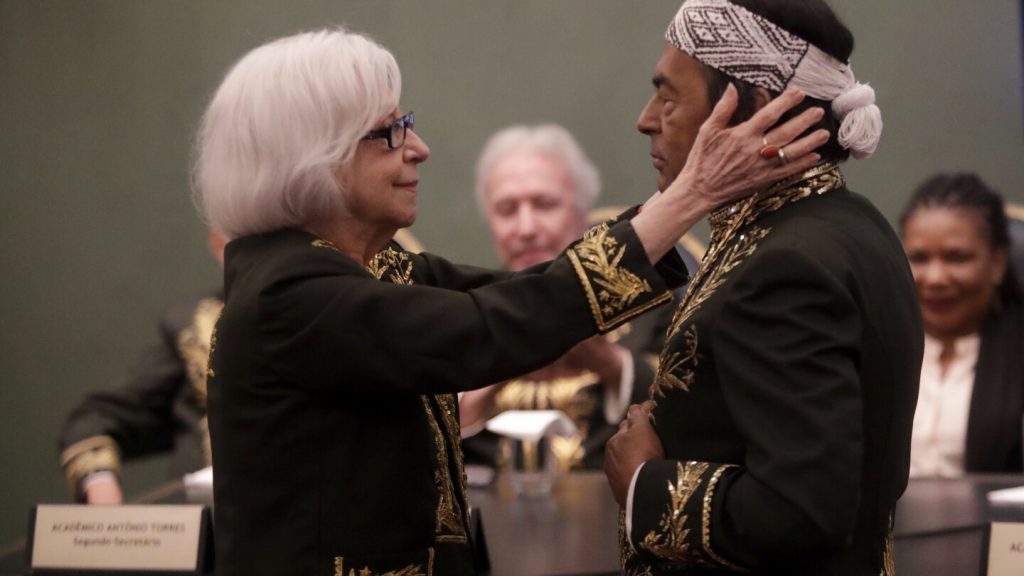Brazil’s Krenak people had a historic week, receiving both literary acclaim and an apology for human rights abuses suffered during the military dictatorship. Ailton Krenak, a renowned writer and environmentalist from the Krenak tribe, was awarded a seat at the Brazilian Academy of Letters, becoming the first Indigenous person to receive this honor. Krenak plans to create a platform to make the academy’s documents and books available in Indigenous languages, aiming to preserve and promote the diversity of Brazilian Indigenous languages.
The apology for human rights abuses towards the Krenak people was a ceremonious event that took place on Tuesday. During the event, law professor Eneá de Stutz e Almeida knelt before Indigenous leader Djanira Krenak and asked for forgiveness on behalf of the Brazilian State. The crimes committed during the dictatorship included forced displacement, torture, and suppression of Indigenous languages. The commission responsible for investigating these crimes also extended an apology to the Guarani Kaiowá Indigenous people, who were similarly mistreated during the dictatorship.
The cases of the Krenak and Guarani Kaiowá Indigenous groups were initially rejected by the amnesty commission in 2022, during former President Jair Bolsonaro’s government. However, prosecutors appealed these decisions, leading to the recent apology ceremonies. President Luiz Inácio Lula da Silva, who has advocated for Indigenous rights, created eight new Indigenous territories since taking office. The apology to Indigenous peoples for the persecution they faced during the dictatorship aligns with a broader movement towards truth and reconciliation in Brazil.
Despite these gestures of apology and recognition, Indigenous communities in Brazil continue to face threats to their livelihoods. A right-leaning Congress is pushing for legislation that could weaken protections for Indigenous land rights, and the country’s highest court is set to rule on the matter. Ailton Krenak emphasized that while apologies are important, they do not address the deep social and economic challenges faced by Indigenous peoples. He highlighted the ongoing violence and marginalization experienced by groups like the Guarani Kaiowá, stressing the need for systemic change to support Indigenous communities.
Krenak’s work as a writer and advocate focuses on preserving Indigenous memory, culture, and tradition in the face of ongoing threats. He emphasizes the importance of intergenerational knowledge transfer and the role of storytelling in maintaining Indigenous identity. The recognition of his work by the Brazilian Academy of Letters reflects a growing acknowledgment of Indigenous voices in the country’s literary and cultural landscape. Krenak’s dual achievements of literary recognition and official apology mark a significant step towards acknowledging and addressing historical injustices against Indigenous peoples in Brazil.


